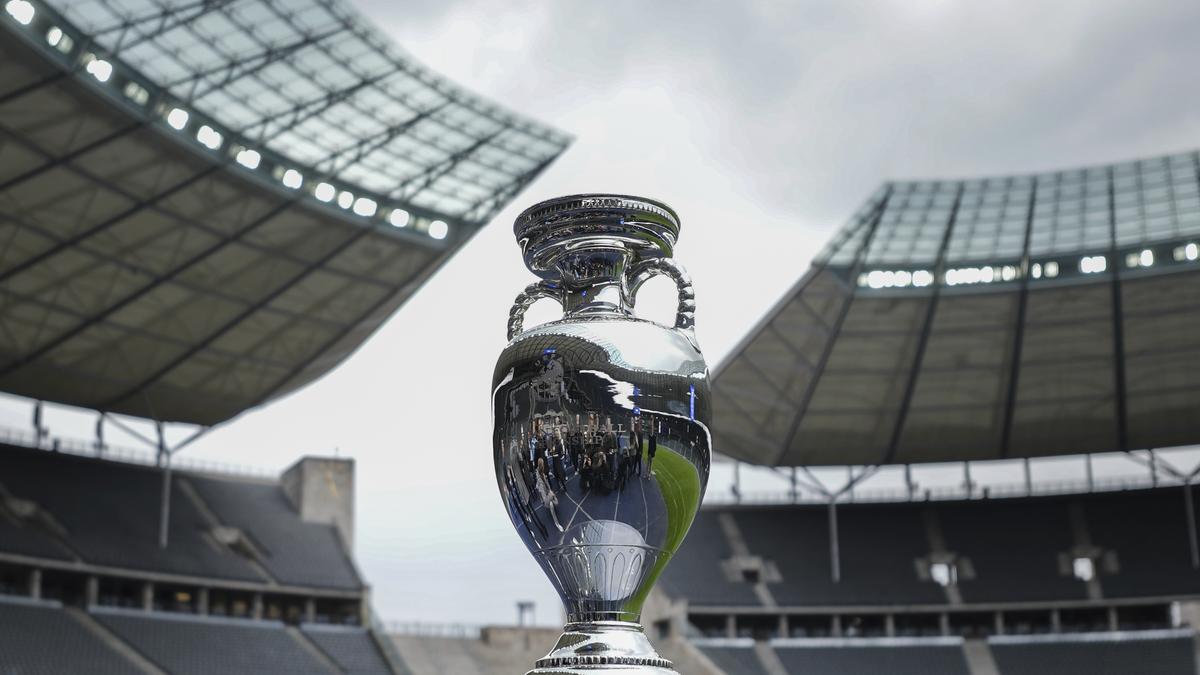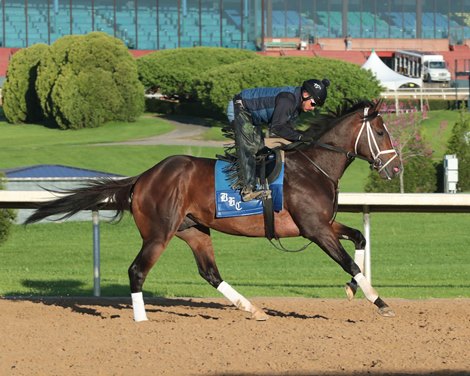As Germany gets ready to host Euro 2024 from June 14 (Friday), an analysis of Groups A to C.
Group A: Germany, Scotland, Hungary and Switzerland.
Tournament host Germany face Hungary, Switzerland and Scotland, a set of talented if unpredictable rivals, in Group A as they bid for a record-breaking fourth Euros crown.
After a decade of underperforming, Germany come into the tournament on the rise.
Improving under coach Julian Nagelsmann, the Germans may now be in the frame for a deep run in the tournament, particularly after dispatching France and the Netherlands in impressive style in March.
Getting through the group will be no forgone conclusion however, particularly with Hungary firing under manager Marco Rossi.
In spite of a 1-0 defeat by Ireland in their pre-tournament warm-up, the Hungarians have been in outstanding form, unbeaten until that setback since September 2022, a run of 12 games.
Switzerland and Scotland are the outsiders but either could have a shot of spoiling the hosts’ party with a run to the knockouts.
Germany have won three European championships as well as four World Cups, most recently in 2014, but their reputation as a tournament team has taken a battering over the past decade.
After losing in the semi-finals to France in 2016, Germany were knocked out at the group stages of the World Cup in 2018 — their earliest exit in 80 years.
The Germans repeated the trick four years later in Qatar, having been eliminated at the Euros last 16 in 2021 by eventual finalists England.
Then manager Hansi Flick was fired late in 2023 after a 4-1 loss to Japan in Wolfsburg, the first coach sacked in Germany history.
His replacement, Nagelsmann, won just one of his first four matches before shaking up the squad in March.
The 36-year-old made 11 changes, dropping established stars like Leon Goretzka, Serge Gnabry, Mats Hummels and Niklas Suele for in-form players from league champions Bayer Leverkusen and surprise packets Stuttgart.
The change paid dividends, with Nagelsmann’s energetic and hungry side beating France and the Netherlands.
After reaching the semi-finals in 1972, Hungary’s football nose-dived and they failed to qualify for the Euros unntil 2016 but this is their third successive tournament and Rossi’s side have high hopes of pushing beyond the group stage.
Leipzig captain Willi Orban and goalkeeper Peter Gulasci will reunite with former teammate Dominik Szoboszlai, who moved to Liverpool last year.
Freiburg’s creative forward Roland Sallai rounds out a team heavy with Bundesliga experience, which may be crucial when Hungary meet the hosts in Stuttgart, a rematch of the 1954 World Cup final surprisingly won by the underdog West Germans.
Golden Swiss and ‘Tartan Army
Neighbouring Switzerland head into Euro 2024 as the most successful team in the country’s history, a continuation of the side which won the U17 World Cup in 2009.
Switzerland reached the quarter-finals in the last Euros, their best result at the competition, and are the only side to eliminate France before the final at a major tournament since 2014.
In his first season at Bayer Leverkusen, Swiss captain Granit Xhaka was the heart and soul of a team which won the league and cup double, going 51 games unbeaten on the way to the Europa League final — their only loss of the season.
Goalkeeper Yann Sommer had a great season with Serie A champions Inter Milan, while forward Xherdan Shaqiri — who plays with Chicago Fire in the MLS — remains the main creative outlet for the Swiss.
Xhaka, Sommer and Shaqiri are all on the wrong side of 30 while Manchester City’s Manuel Akanji is 28, meaning Switzerland will need to make hay at Euro 2024 before their golden generation loses its shine.
Scotland will open the tournament against hosts Germany on June 14 and, despite losing striker Lyndon Dykes, boast plenty of Premier League talent, including captain Andy Robertson, Scott McTominay and John McGinn.
Regardless of their on-field performance, Scotland will be among the best supported of the 24 teams.
The British consulate in Munich estimated up to 200,000 Scotland fans could make the trip to Germany — well over the 10,000 tickets officially allocated to the ‘Tartan Army’.
Group B: Spain, Croatia, Italy and Albania
Heavyweights Spain, defending champions Italy and Croatia will duke it out in the dreaded group of death as they battle to reach the latter stages of Euro 2024.
A durable Albania side join the strong trio in the fascinating Group B, determined to do more than just make up the numbers in Germany.
Spain are favourites to progress after defeating both Italy and Croatia to win their first UEFA Nations League title in 2023, but those hard-fought matches revealed there is little between the three powerful teams.
Luis de la Fuente took Spain to their first trophy since La Roja won Euro 2012, their third European Championship victory.
With young wingers Lamine Yamal and Nico Williams embedding themselves in De la Fuente’s plans, Spain have the flair and speed missing in the past to complement their deep reserves of technical ability.
La Roja are still without a reliable goalscorer, with Atletico Madrid’s Alvaro Morata badly out of form in the second half of the season and yet likely to lead the line.
Manchester City defensive midfielder Rodri adds consistency and steel to hold things together at the back.
A 3-3 friendly draw against Brazil in March illustrated some of Spain’s strengths and weaknesses.
Italy, who triumphed against England to win Euro 2020, are a tough prospect on paper despite their failure to reach the 2022 World Cup.
Former Napoli coach Luciano Spalletti took over in August after Roberto Mancini’s unexpected resignation.
The two-time winners boast several players from Serie A champions Inter Milan’s side, led by playmaker Nicolo Barella.
Paris Saint-Germain goalkeeper Gianluigi Donnarumma was key in Italy’s triumph in the last edition.
Similarly to Spain, Italy lack a clear first choice, top quality centre-forward, with Genoa’s Mateo Retegui the current best bet to lead the line, while Juventus’ Federico Chiesa will be a danger from out wide.
Modric swansongCroatia were knocked out by Spain in the last 16 at Euro 2020 but their blend of experience and emerging talent could take them far further on this occasion.
Runners-up at the 2018 World Cup and third in Qatar two years ago, Zlatko Dalic’s Croatia will try to give 38-year-old veteran midfielder Luka Modric a superb swansong.
Osasuna forward Ante Budimir is in fine form in Spain, while with Mateo Kovacic and Marcelo Brozovic in midfield and Josko Gvardiol at the back, Croatia have top talent sprinkled throughout the team.
Albania, by contrast, boast no star names but are capable of defending deep and setting out to frustrate more illustrious opponents, while waiting patiently for chances to counter.
Draws with minnows the Faroe Islands and Moldova last year explain Albania’s status as rank outsiders in what will be one of the most intriguing groups to follow in Germany.
Albania start against Italy on June 15, while Spain take on Croatia to kick off the group.
La Roja then face Italy on June 20 with Albania pitted against Croatia, before Spain play the minnows and champions the Azzurri take on Dalic’s team on June 24.
Group C: Slovenia, Denmark, Serbia and England
England are ready to make Euro 2024 “headlines” as the Group C favourites prepare to launch their bid for a first major trophy in 58 years.
Gareth Southgate’s side, who face Serbia, Denmark and Slovenia in the group stage, head to Germany as one of the leading contenders for Euro glory after a series of painful near misses in recent tournaments.
England lost on penalties to Italy in the coronavirus-delayed European Championship final at Wembley in 2021.
The Three Lions were defeated by Croatia in the 2018 World Cup semi-finals and were eliminated by France in the 2022 World Cup quarter-finals after Harry Kane missed a late penalty.
Those agonising failures have only sharpened England’s desire to get their hands on major silverware for the first time since Bobby Moore lifted the 1966 World Cup.
Able to call on world-class talents including Harry Kane, Jude Bellingham and Phil Foden, England are ranked alongside France — World Cup runners-up two years ago — and hosts Germany as the bookmakers’ three top title contenders.
And in what could be his final tournament in charge, England boss Southgate, whose contract expires in December, is embracing those expectations as he eyes a place in the final in Berlin on July 14.
“Everybody is waiting for that headline (‘We can win the Euros’). I would be an idiot if I said ‘no’, and equally if I said ‘yes’ that doesn’t mean there’s not a lot of work ahead of us,” Southgate said.
“There is no doubt what’s possible, they have gone close already. Are we one of those teams that can win? Yes, absolutely.
“They know what is possible, they know what they’ve won at club level and what that’s taken. You can see cup football, you have to navigate game by game.”
England’s first game is in Gelsenkirchen on June 16 against Serbia, who finished second in their qualifying group behind Hungary.
Denmark test for England
It will be England’s first encounter with the Serbs since their split with Montenegro in 2006.
Southgate’s men, unbeaten in their eight qualifying matches, take on Denmark four days later in Frankfurt before finishing the group stage against Slovenia in Cologne on June 25.
England fans will recall their side, then managed by Fabio Capello, beat Slovenia 1-0 in a must-win group game to reach the knockout stages at the 2010 World Cup.
If they are to win the European Championship for the first time, England would greatly benefit from finishing top of Group C.
As group winners, they would face a last-16 tie against a team that finishes third in Group D, E or F, while they would probably face a daunting last-16 clash against Germany if they finish second.
England’s toughest group game is likely to come against Denmark, who pushed them to the brink in a dramatic Euro 2020 semi-final eventually won 2-1 by Southgate’s side after extra time.
Denmark famously won the 1992 Euros and, while Kasper Hjulmand’s squad failed to make it out of their group at the last World Cup, they are still capable of causing a surprise in Germany.
Slovenia are participating in a major tournament for only the fourth time and the first since the 2010 World Cup.
Having reached their first European Championship for 24 years, Matjaz Kek’s team are hoping to make the knockout stages of a major event for the first time.
Serbia will rely on Juventus striker Dusan Vlahovic, Fenerbahce forward Dusan Tadic and AC Milan striker Luka Jovic to fuel their bid for a place in the last 16.










Leave feedback about this